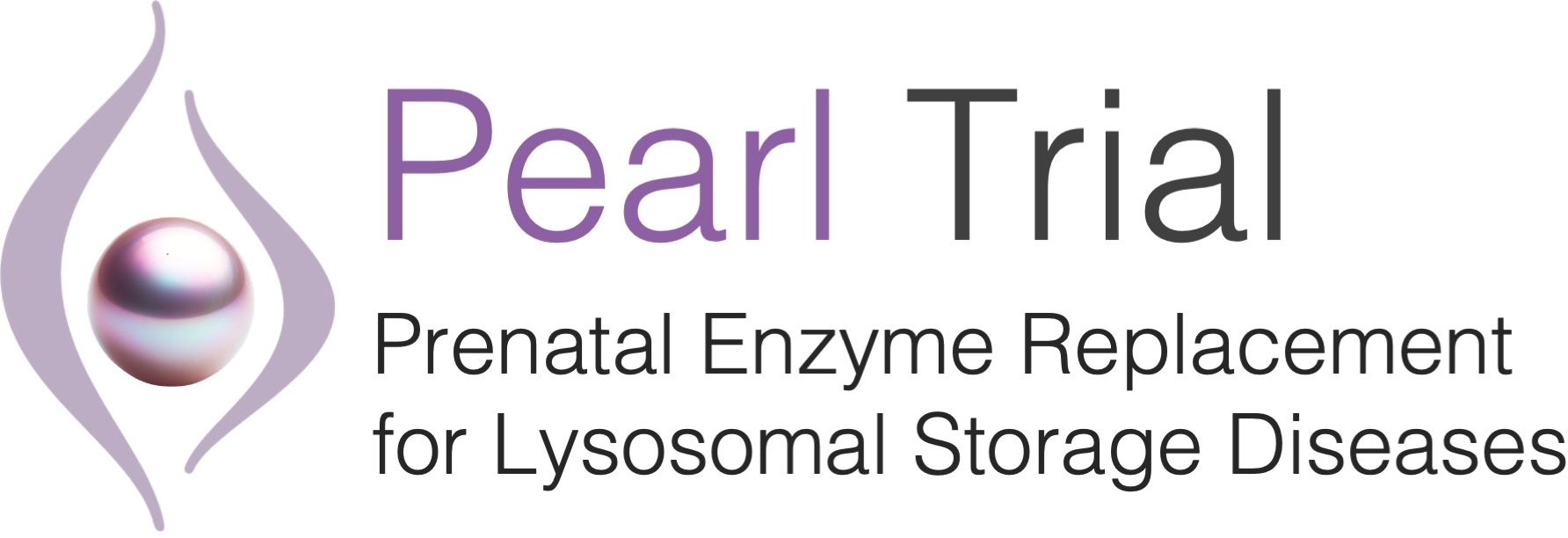If you are expecting a baby at risk for Wolman disease, UCSF has a clinical trial that may help. This trial starts treatment before birth.
UCSF Offers Pioneering Treatment for Wolman Disease
Lysosomal acid lipase deficiency (Wolman disease) is a rare, inherited enzyme deficiency. Babies with this genetic disorder do not produce an enzyme needed to break down fats in the body.
Wolman disease is a life-threatening condition. It affects the adrenal glands, liver, spleen, and growth. The PEARL Trial starts treatment before birth because damage to organs from Wolman disease starts before birth.
What is Enzyme Replacement Therapy (ERT) for Wolman disease?
ERT for Wolman disease replaces the missing enzyme with a medication called sebelipase alfa. This medication is normally administered after birth to reduce the severity of the disease. How well this treatment works can be limited. Sometimes the body makes antibodies (proteins the body makes to protect it from germs or other substances) against the ERT. This can limit how well ERT works.
UCSF has a strategy to make ERT more effective
UCSF has an FDA-approved clinical trial to treat fetuses with Wolman disease before birth. Treating before birth may improve outcomes and survival rates. The immune system before birth is less likely to make antibodies against the enzyme. By giving ERT before birth we may be able to prevent antibody creation long-term (also known as tolerance). UCSF hopes that prenatal ERT will prevent or reduce the damage that starts in pregnancy. Learn more about this groundbreaking work at UCSF News.
Our new clinical trial could be a significant step towards improving the lives of those with Wolman disease.
Financial support for participant expenses
The PEARL Trial supports:
- Travel costs for participant and companion (transportation, housing, and food costs)
- Study-related expenses
Connect with the trial team
A member of the trial team would be happy to speak with you. Please complete our contact form. This conversation will help you consider whether participation would be right for you.
Why UCSF and Dr. Tippi MacKenzie?
The University of California, San Francisco (UCSF) is a leader in maternal-fetal precision medicine, with a history of innovation in fetal therapy. Dr. Tippi MacKenzie, the lead physician, is a respected expert in the field. For two decades she has been working to improve outcomes for babies with genetic disorders. Dr. Tippi MacKenzie trained at Stanford University, Harvard Brigham and Women's Hospital, and the Children's Hospital of Philadelphia. Choosing UCSF means trusting a team committed to compassionate, innovative care.
Frequently Asked Questions
What is Wolman disease?
Lysosomal acid lipase deficiency (Wolman disease) is a rare, inherited enzyme deficiency. It is caused by mutations in a gene called LIPA. Babies with Wolman disease do not create an enzyme called lysosomal acid lipase (LAL). LAL is an important enzyme that breaks down fats in the body. Without LAL or enzyme replacement therapy (ERT), toxic levels of fats build up in cells. This build-up leads to severe organ damage that starts before birth. Wolman disease is a type of genetic disorder called a lysosomal storage disease (LSD).
How can Wolman disease impact babies?
Wolman disease affects many parts of the body, including:
- Adrenal glands
- Liver
- Spleen
Wolman disease causes:
- Build-up of hard deposits (calcification) in the adrenal glands
- Enlargement of the liver and spleen
- Trouble absorbing nutrients from food (malabsorption). This causes significant growth failure and other severe health issues.
Is there treatment for Wolman disease?
Sebelipase alfa is an enzyme replacement therapy (ERT) to replace lysosomal acid lipase (LAL), which is not produced by people with Wolman disease. It is FDA-approved for babies, children, and adults with Wolman disease, who receive ERT through intravenous infusion every 2 weeks for life.
What is Prenatal ERT for Wolman disease?
Prenatal ERT is currently available through a clinical trial. It is a treatment given before birth to prevent or lessen the impact of Wolman disease. It uses the same medication approved for babies, children, and adults with Wolman disease.
What makes this clinical trial different?
The PEARL Trial is the first to give Prenatal ERT for Wolman disease. This means that a fetus receives ERT before birth. The goal of this new strategy is to avoid the drawbacks of waiting until after birth for treatment.
What is a clinical trial?
A clinical trial is research that involves a treatment and people. Clinical trials help researchers answer questions like:
- Is a new treatment safe?
- Does the new treatment do what it is supposed to do?
- Is the new treatment better than a current treatment?
- Which patients benefit the most from the new treatment?
In the PEARL Trial, we are testing to see if Prenatal ERT for Wolman disease:
- Is safe for mother and fetus when given prenatally
- Improves the health of the children who start ERT before birth compared to children who start after birth
Where can I get more information?
This text was written and approved by Dr. Tippi MacKenzie, a pediatric and fetal surgeon, and Dr. Paul Harmatz, a pediatrician and metabolic disease expert, at the UCSF Benioff Children's Hospitals. Our approach was approved for use in a clinical trial by the US FDA in 2020, and our study is governed by UCSF's Institutional Review Board to ensure ethical and equitable treatment of participants.
